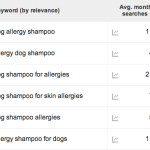Hi everyone, hope you all had a great and productive week! If you are a marketer, you should know about the FTC guidelines which requires anyone who receives any form of compensation when endorsing products in their specific sites (blogs, company sites, etc.) to disclose it (see example here). You probably have seen a sponsored review saying “this post brought to you by..” or “this is a paid post, all opinion are my own and…”. As of recently, such disclosure requirements were not very clear when it comes to endorsements of products or services via social media.
FTC Puts Social Media Marketers On Notice
As reported by MarketingLand.com, they say that –
Late last month, the FTC updated the “What People Are Asking” page for its Endorsement Guides for the first time since 2010. The FTC’s basic message — that material relationships between brand and endorser on social media must be “clearly and conspicuously” disclosed — hasn’t changed. But FTC is now getting more specific with detailed guidance about social media issues that weren’t on the agency’s radar five years ago.
So, I highly suggest you read the full report and be sure you don’t fall under the FTCs radar.
Why We Can’t Do Keyword Research Like It’s 2010
What is the one thing or mention you will always see when on an SEO related posts nowadyas? Probably something like this – “SEO tactics used years ago no longer work today…” – ring a bell? Of course it does, and if that is so, why would you insists on doing keyword research today, the same way you did 5 years ago? Just like other SEO tactics that changed, keyword research has also changed. And yes, it is still very important for SEO, although the process of doing so is very different than it was years ago. If you don’t keep up with the times you might end up doing more harm than good.
From the research itself to the selection and targeting process, in Rand’s Whiteboard Friday video, he explains what has changed and what we all need to do to conduct effective keyword research today.
Making Pinterest – Demystifying SEO with experiments
OK, it’s not a detailed step by step SEO guide, but it is the framework that Pinterest uses to do their SEO and it is a very interesting read. As you know Pinterest has millions of boards, pages, etc., and doing their SEO requires lots of experiments and engineering. If you are interested in knowing how they do SEO and their SEO experiments, go here.
Here’s an excerpt of what they have to say:
“Search engine optimization (SEO) has been one of the biggest drivers of growth for Pinterest. However, it wasn’t always easy to find winning strategies at our scale. Traditionally, SEO tactics include trying out different known strategies and hoping for the best. You might have a good traffic day or a bad traffic day and not know what really triggered it, which often makes people think of SEO as magic rather than engineering.”
And as usual, in no particular order:
Content Creation & Marketing/SEO and Search
- Long Tail Google SEO Is Dead But Long Tail Searches Live On
- The Surprising Secret of Successful SEOs
- 20 Tips to Reverse Engineer Your Competitor’s SEO
- 9 Time Saving Link Building Tools
- How to Score .Gov Links for SEO
Social Media/Small Business Bites
- Twitter CEO Richard “Dick” Costolo Steps Down
- 8 LinkedIn Marketing Tips From the Experts
- 12 Elements Of A Solid SEO Contract
- Why Social Media Insights Are A Gold Mine For Inbound Marketers
- 9 tiny tweaks that will make your LinkedIn profile stand out
More from around the web …
- Marketing Day: Facebook Tweaks News Feed, Nielsen App Report & Email Tips
- SearchCap: Canada Censors Google, France Right To Be Forgotten & Local SEO
- Facebook Place Tips: This Week in Social Media
That’s it! Enjoy, have a great weekend!
image credit: marketingland.com











Comments are closed.